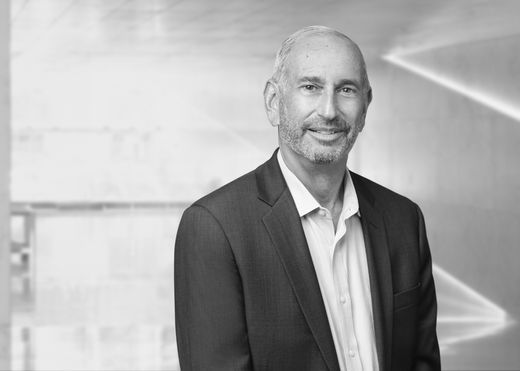Court Dismissed Lawsuit Challenging Section 1705 DOE Loan Guarantees

A federal judge dismissed a lawsuiti seeking to invalidate 27ii loan guarantees made by the Department of Energy for renewable energy projects.
In November 2011, Californians for Renewable Energy (CARE), a non-profit organization, and its president Michael Boyd (Plaintiffs), filed the lawsuit in the U.S. District Court for the District of Columbia against the U.S. Department of Energy (DOE), Steven Chu in his capacity as secretary of DOE, the United States Department of the Treasury, Timothy F. Geithner in his capacity as Treasury secretary, and the Federal Financing Bank (Defendants). The lawsuit attacked all of the loan guarantees issued under Section 1705 of the Energy Policy Act, which was added to Title XVII of the Energy Policy Act (the Act) by the American Recovery and Reinvestment Act of 2009. Until 2009, Title XVII guaranteed loans only for projects employing new or significantly improved renewable energy technologies. However, in response to the recession and concern that investment in energy technologies would halt, Congress temporarily allowed DOE to issue loans for “existing” commercial technologies under Section 1705 of the Act until September 2011. CARE filed the lawsuit on the grounds that DOE issued the Section 1705 loan guarantees without having regulations in place that explicitly addressed the Section 1705 program.
On February 10, 2012, the Department of Justice (on behalf of the Defendants) filed a motion to dismiss Plaintiffs’ suit for lack of subject matter jurisdiction, arguing that the Plaintiffs do not have standing. On May 17, 2012, U.S. District Judge James E. Boasberg ordered the dismissal of the case without prejudice. The Court found that the Plaintiffs failed to demonstrate the three elements required for Article III standing: (i) injury; (ii) causation, and (iii) redressability. According to the Court, “the doctrine of standing requires federal courts to satisfy themselves that the plaintiff has alleged such a personal stake in the outcome of the controversy as to warrant his invocation of federal-court jurisdiction.” In this case, CARE sued on behalf of its members. Therefore, CARE must establish “representational” or associational” standing in order to pursue the case for its members. To do so, CARE needed to establish that its members would otherwise have standing to sue in their own right. CARE’s president, Michael Boyd, was the only member named in the suit, and the Court held that Michael Boyd lacked standing to sue in his own right, and as a result, CARE lacked standing to sue on his behalf.
In its opposition to the motion to dismiss, CARE claimed that Boyd suffered three kinds of injury: (i) deprivation of procedural rights, (ii) environmental, recreational, and aesthetic harms, and (iii) financial harm from increased utility rates. Judge Boasberg found that Boyd failed to establish standing under Article III because the alleged procedural, recreational, and aesthetic harms do not constitute actual or imminent injury and because the causation and redressability elements have not been met with respect to the financial harms.
With respect to the first alleged harm, the Court held that Boyd failed to demonstrate that he suffered a concrete injury as a result of DOE’s alleged failure to issue final regulations regarding Section 1705. Boyd had claimed he was deprived of the right to comment on rulemaking. However, the Court found that being deprived of the opportunity to comment on proposed rules is not specific to Boyd, but rather shared by every member of the public. Thus, the Court found that this generalized injury would not suffice.
The Court also found that Plaintiffs’ second and third alleged harms failed for similar reasons. The Judge held that the second alleged injury of environmental, aesthetic, and recreational harms is too broad to constitute an injury-in-fact under Article III. Addressing the third alleged injury, the Court found that even assuming increased utility rates would satisfy the injury requirement for standing, the Plaintiffs failed to show that any such increase was caused by DOE’s conduct. Consequently, the Court held that “the connection between the alleged procedural violation and rate increases was too tenuous to support causation.”
Please note that since the Court dismissed the lawsuit “without prejudice,” the plaintiffs have a right to bring a new lawsuit on the same claims. It remains to be seen whether the Plaintiffs will re-file the suit which, would require, at least, a demonstration of standing to pursue their claims.
Contact Information
If you have any questions regarding this alert, please contact—
| Adam Umanoff aumanoff@akingump.com 213.254.1300 Los Angeles - Downtown |
Edward W. Zaelke ezaelke@akingump.com 213.254.1234 Los Angeles - Downtown |
| Jacob Worenklein jworenklein@akingump.com 212.872.1027 New York |
Daniel P. Sinaiko dsinaiko@akingump.com 213.254.1211 Los Angeles - Downtown |
| Scott Heimberg sheimberg@akingump.com 202.887.4085 Washington, D.C. |
Susan H Lent slent@akingump.com 202.887.4558 Washington, D.C. |
| Steven R. Ross sross@akingump.com 202.887.4343 Washington, D.C. |
i Californians for Renewable Energy et al. v. U.S. Department of Energy et al., case number 1:11-cv-2128, in the U.S. District Court for the District of Columbia
ii
(1) Solyndra
(2) AES Energy Storage, LLC
(3) Beacon Power
(4) Kahuku Wind Power, LLC
(5) Nevada Geothermal Power Company, Inc.
(6) Caithness Shepherds Flat
(7) Abound Solar
(8) Abengoa Solar, Inc. (Solana)
(9) U.S. Geothermal, Inc.
(10) LS Power Associates
(11) Abengoa Bioenergy Biomass of Kansas, LLC
(12) NRG Solar, LLC (Agua Caliente)
(13) Record Hill Wind
(14) SoloPower Technology
(15) 1366 Technologies, Inc.
(16) Abengoa Solar, Inc. (Mojave Solar)
(17) Cogentrix of Alamosa, LLC
(18) First Solar, Inc. (Antelope)
(19) First Solar, Inc. (Desert Sunlight)
(20) Granite Reliable
(21) Mesquite Solar I, LLC (Sempra Mesquite)
(22) Ormat Nevada, Inc.
(23) POET, LLC
(24) Prologis (Project Amp)
(25) Solar Reserve, LLC (Crescent Dunes)
(26) SunPower Corporation, Systems (California Valley Solar Ranch).
(27) BrightSource Energy, Inc




